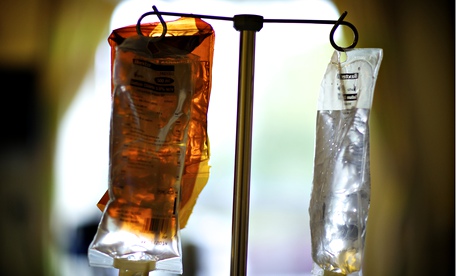Smokers in England wanting to quit face a postcode lottery as cash-strapped councils and GPs restrict access to services that can help them.
The revelation has alarmed health experts and charities who claim that lives are being put at risk as a result of the fragmented provision.
Evidence obtained under the Freedom of Information Act shows that an increasing number of clinical commissioning groups – the 200 or so organisations that deliver NHS services in England – have been instructing GPs to stop providing the services. Many of the groups argue that it is no longer their responsibility.
In 2012, local authorities were made responsible for improving public health and given £2.8bn of ring-fenced grants to pay for it. But, as the grants have been pared back, councils have pulled their funding for stop smoking services.
This has led to a rationing of treatments – such as nicotine replacement therapies, bupropion (brand name Zyban) or varenicline (Champix) – in many areas. When used in conjunction with counselling, studies suggest the chances of a smoker quitting can be substantial.
Almost a quarter of a million people stopped smoking in the 12 months to April 2015 as a result of using the services, a quit rate of 51%. The services are said to have a high success rate in helping smokers in poorer communities stop.
“We are increasingly concerned that cuts in council spending, NHS cost pressures and a lack of joined-up thinking by central government are combining to block progress on cutting smoking, still the No 1 public health challenge facing the country,” said Deborah Arnott, chief executive of Action on Smoking and Health (Ash).
A briefing last year to clinical commissioning groups in Worcestershire said: “Worcestershire county council will only fund a smoking cessation service for pregnant women. The CCGs have considered the implications of this decision and due to the current financial challenges are unable to commit local funding to smoking cessation services or prescribing of products to support stop smoking attempts.
“GPs are therefore advised that no prescriptions for nicotine replacement therapy, bupropion or varenicline should be written for new patients from 1 April 2016.”
It added: “The CCGs appreciate that GPs will be in the difficult position of having to explain to patients that this service is no longer available.”

Restrictions have also been imposed in East Kent, York and Somerset. Windsor, Ascot and Maidenhead CCG told GPs last May: “The royal borough has commissioned a new smoking cessation service. From April 2016 Solutions4Health are commissioned to support only three groups: pregnant smokers, smokers with mental health issues and young people. The bottom line is that GPs are not commissioned to provide smoking cessation services.”
But local authorities are failing to plug the gap created by GPs discontinuing the service. A survey by Ash and Cancer Research UK has found that smoking cessation budgets have been cut in almost three in five authorities. Health organisations claim this is a false economy.
At least £1.4bn a year is spent on social care because of smoking-related illness, Ash says. Access to services for patients needing surgery – known as “Stop before the Op” – is considered particularly important.
Smokers are 38% more likely to die after surgery than non-smokers due to higher risks associated with lung and heart complications; higher risks of post-operative infection; impaired wound healing and the need for longer hospital stays and higher drug doses.
The National Institute for Health and Care Excellence estimates that for every £1 invested in quit smoking services, £2.37 will be saved on treating smoking-related diseases and lost productivity.
But the service is not considered a priority. A report by the British Thoracic Society, published in December, shows that NHS hospitals are falling “woefully short” of national standards when it comes to helping patients quit.
It found that 72% of hospital patients who smoked were not asked if they would like help in stopping.
Since last May, all cigarettes must be sold in plain packs that carry the message “get help to stop smoking at www.nhs.uk/quit”. But the fragmented nature of stop smoking provision means some people are being told to contact services miles out of their local authority area.
For example, the site directs smokers in Worcester to a service in Solihull some 35 miles away – for which they do not qualify.
“It’s alarming that a pre-operative patient advised to stop smoking will only get NHS help if they live in the right place – a postcode lottery that will damage patients’ health and certainly cost the health service money in the long run,” Arnott said.
A Department of Health spokesman said smoking rates in England were the lowest they have ever been as a result of its policies. “The needs of individual communities vary significantly across the country, and local areas are best placed to understand local needs,” the spokesman said.
Smokers trying to quit hit by postcode lottery as GPs ration help
